- Home
-
Private banking
-
LGT career
Forget the tofu stereotypes - today's vegetarian dining in Hong Kong ranges from chic Central cafés to temple-side trout ponds.

Not long ago, vegetarian dining in Hong Kong was limited to Buddhist-run kitchens, modest diners serving ersatz dishes disguised as meat, or street food known as stinky tofu. But recently the city has started to embrace a more sustainable cuisine, and options range from no-nonsense vegan spots popular with the Lululemon crowd to Michelin three-star restaurants.
Here are some vegetarian hot spots in Hong Kong.
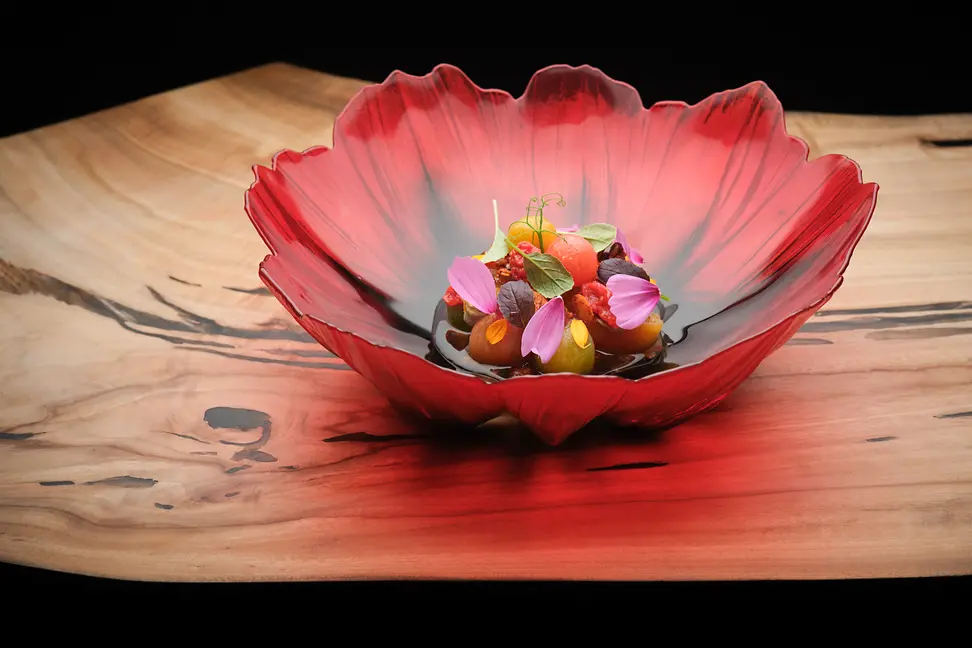
The first to be recognized for its achievements in sustainability is Roganic, which earned a Green Star in 2021. Opened six years ago by UK-based Michelin 3-star chef Simon Rogan, it recently relocated to the fourth floor of a luxury mall in Causeway Bay, using upcycled wood from trees felled by typhoons.
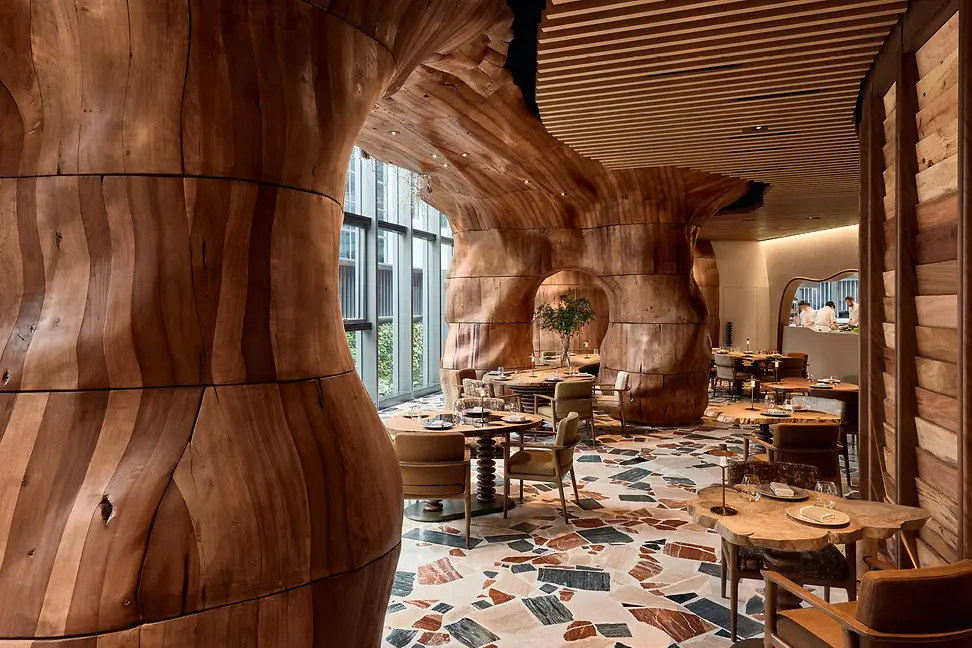
It has its own roof top herb garden and access to a food composter in the basement, a rarity in Hong Kong where food waste is endemic. Head Chef Adam Catterall buys marigold, figs, hibiscus and passion fruit from a handful of local suppliers, including one appropriately called Zen Organic Farm, but says sourcing fresh organic produce is still a big challenge. "We have strong friendships and connections with a lot of growers but they are all small scale which can be an issue, especially as the seasons are quite short", he says.

Roganic offers a fully vegetarian menu featuring dishes including tomatoes in perilla and coal on top of fermented pistachio, and Kombu-baked kohlrabi, seaweed jam and apple marigold juices. When asked which star mattered to him more, Catterall replied, "that's like asking who is your favourite child".

For a more contemporary vibe, consider the vegetarian brunch at Duddell's, popular with people in the art industry - forget about trying to secure a reservation during Art Basel Hong Kong.
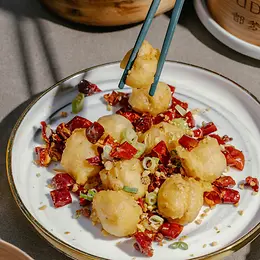
Its travertine walls, polished concrete floors and muted tones (by London-based designer Ilse Crawford) provide a perfect setting for its rotating exhibitions, ranging from contemporary African art to Chinese Ink from the renowned M.K. Lau collection belonging to the father of one of Duddell's founders.
It's the go-to place for entertaining clients, for Kelvin Yang, managing director of Galerie du Monde. "Whether they want vegetarian, gluten-free or traditional Cantonese Dim Sum, Duddell's caters to every need", he says.
At Michelin 3-star Amber restaurant in the Mandarin Oriental Landmark hotel, Dutch chef Richard Ekkebus has been cooking without dairy since 2019, a bold step for a restaurant known for its French cuisine. "Seventy percent of Asians are lactose intolerant and we wanted to make our food less heavy", Ekkebus explains.
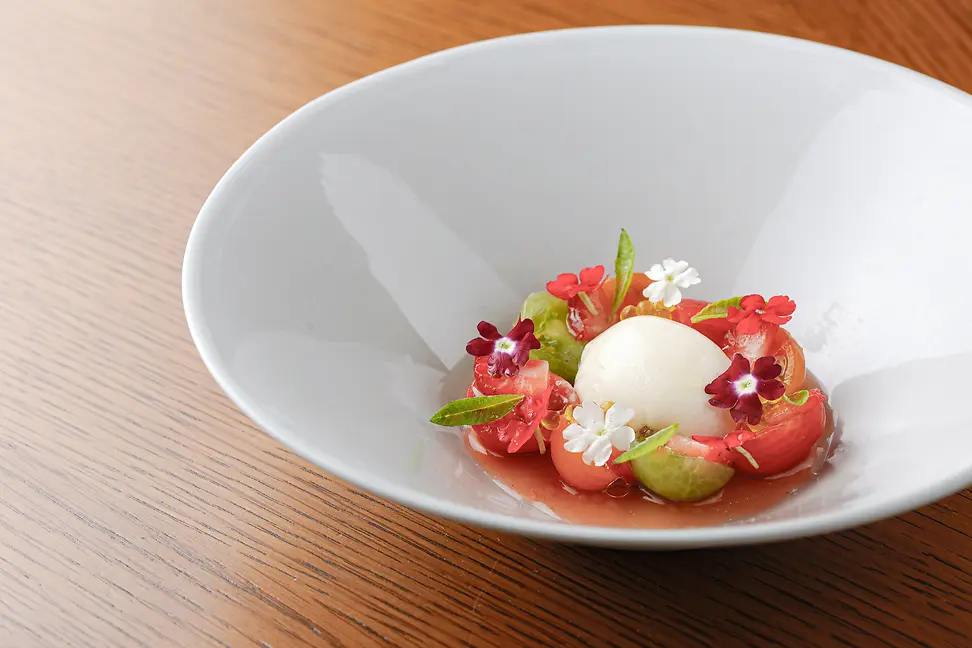
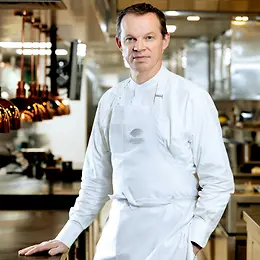
Amber offers full vegetarian and vegan set menus, featuring its signature plant-based dish of soymilk burrata with Japanese heirloom tomatoes, Fukuoka strawberries, olive oil caviar and pickled rose. His efforts have paid off. Amber recently earned a Green Star for sustainability, one of only four in Hong Kong to win that honour.
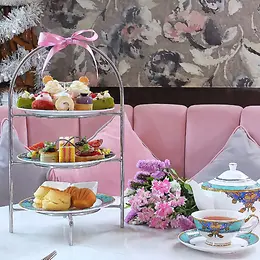
Madame Fu's Grand Café evokes Shanghai and Paris of the 1920s and 1930s. It offers both meat and plant-based menus. Try the steamed mushrooms and black truffle-stuffed dumplings and crispy cauliflower fungus with sweet Jiang Zhan vinegar.
Another popular spot in Tai Kwun is the Chinese Library, serving both meat and plant-based dishes.
Treehouse is a plant-based spot popular with the health-conscious crowd. Set on a narrow alleyway just off the city's famous outdoor escalator in Central, you're just as likely to see a jacked hedge fund bro as a Lycra-clad lawyer toting a yoga mat.
Pound for pound, Treehouse's clientele is as healthy as you will find anywhere in the city. Its menu does, however, take time to master due to the dizzying number of choices for the build-your own bowls or wraps: tempeh or tofu; quinoa or kale; eggplant caviar or roasted garlic hummus. Happily, dessert is a no-brainer. Go for the double chocolate walnut brownie or peanut butter bomb.
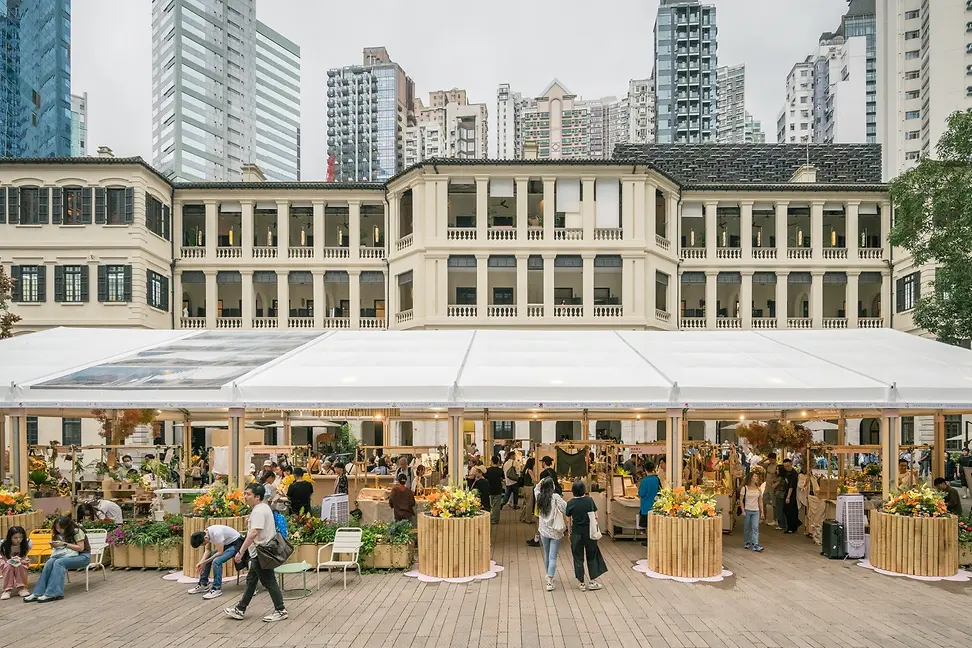
Nearby on bustling Hollywood Road is Yuan, which bills itself as one of the few exclusively vegetarian fine dining spots in the city. Its food is subtle, delicate and beautifully presented. I ordered the five-course lunch (there are also eight- and twelve-course tasting menus) which began with three elaborate amuse bouche dishes ahead of the first course. Then, I tucked into an entrée of Japanese kumquat lemon, white jade wood ear and cloud ear fungus.
This was followed by a matsutake mushroom broth with delicately sliced tofu meant to look like a floating chrysanthemum, though I found it bore an uncanny resemblance to a bobbing jelly fish. For the main I had the grilled portobello topped with cheddar cheese, jicama, morel and king oyster mushroom. After two mouthfuls I regretted my choice as the heavy combination hit my stomach like a stone. Apparently after so many requests for a more substantial dish, my waiter explained, the kitchen put it on the menu.

Across the street is Tai Kwun, the site of a former 1880s police station and prison complex transformed by Swiss architects Herzog and de Meuron into a space for galleries, museums, with several restaurants offering vegetarian fare. One of my favourites any time of the day is LockCha, a traditional Chinese tea house offering simple yet excellent vegetarian dim sum.
Beyond the hubbub of the city, consider a trip to Nan Lian Garden, a tranquil oasis about 35 minutes from Central station by subway or taxi. Famed for its Tang dynasty-style temples and classical Chinese gardens, it also houses the Chi Lin Nunnery, which runs a vegetarian restaurant and tea house next to a trout pond and waterfall.
Still, Hong Kong is at least a decade behind London or New York when it comes to healthier eating options. The city has the highest per capita consumption of meat in the world (primarily pork), ahead of the U.S., Australia and Argentina, according to a 2024 Newsweek article.
Local attitudes are slow to change because of the common belief that plant-based meals are seen as inferior, says Shane Osborn, an Australian chef at Michelin one-star Arcane restaurant, which recently added a fully plant-based menu. "There is a stigma attached to vegetarian food", he said. When he suggested to his local sous chef that he take his spouse, also a Cantonese chef, for a meal at Arcane's plant-based sister restaurant Moxie, he replied "My wife doesn't like healthy food."
Moxie has since closed.